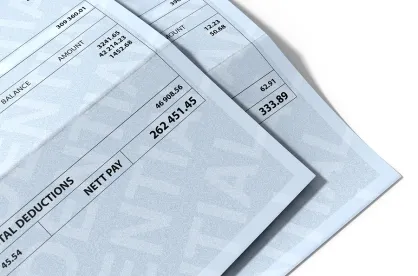In a decision dated September 30, 2022, the National Labor Relations Board ruled that employers must continue to collect voluntarily authorized union dues from the paychecks of employees after the expiration of the agreement. The 3-2 ruling in Valley Hospital Medical Center Inc., d/b/a Valley Hospital Medical Center reversed a 2019 Board decision and reinstated a controversial Obama-era ruling that had overturned more than 50 years of precedent that so-called dues checkoff provisions do not survive the expiration of a collective bargaining agreement (CBA).
As a result, the Board ordered the employer to stop the unilateral ceasing of dues checkoff without reaching a bargaining impasse and make the union whole for the dues it would have received from employees who signed dues check-off authorizations. It further applied its holding retroactively to all pending cases where an employer ceased dues checkoff during the three years during which the prior rule was in effect.
Background
The decision reverses a rule that was in place for nearly 50 years. The NLRB’s 1962 decision in Bethlehem Steel held that employers could unilaterally cease dues checkoffs following the expiration of a contract even before bargaining reaches an impasse. In 2015, during the Obama administration, the Board had controversially overturned that rule in Lincoln Lutheran of Racine, only to bring it back under the Trump administration, in 2019, in an earlier iteration of the present case, known as Valley Hospital I.
In this case, the employer, which is in a “right-to-work” state, notified the union that it would stop deducting dues and remitting it to the union in February 2018, approximately 13 months after the expiration of the parties’ CBA. Article 4 of the CBA included a “Check-Off” Provision that stated dues would be deducted from an employee after “voluntary authorization” by the employee and “shall be continued in effect for the term of the agreement.”
Since Valley Hospital I, this case was reviewed by the Ninth Circuit, which remanded the issue of why dues checkoff provisions are included in the types of provisions that do not survive the expiration of a CBA back to the NLRB for explanation. The current board majority took it as an opportunity to reinstate Lincoln Lutheran, stating that it has “never persuasively explained why dues checkoff should be an exception” and stated that dues checkoff “reasonably belongs in the broad category of mandatory bargaining subjects that Section 8(a)(5) of the [National Labor Relations Act (NLRA)] bars employers from changing unilaterally after the expiration of a contract.”
Dues Checkoff Survives Expiration
The Board majority stated that dues checkoff is unlike other types of CBA provisions that do not survive expiration, such as no-strike, arbitration, and management-rights provisions, as those provisions involve the parties contractually surrendering rights under the NLRA. Dues checkoff, the majority stated, is more similar to provisions for “administrative convenience” that cannot be unilaterally changed, such as provisions for the automatic payroll deductions for savings bonds and insurance policy premiums. Referring to the Lincoln Lutheran ruling, the Board noted that an employee’s voluntary dues authorization is an exercise of Section 7 rights and that allowing unilateral termination of dues checkoff would be “anomalous.”
The majority further rejected the reasoning in Valley Hospital I that dues checkoff would make bargaining more challenging or “divisive,” citing the dissent in Valley Hospital I by then-member and current chairman Lauren McFerran, stating that such an argument is an “ironic and completely irrational” view that “to save collective bargaining, the Board must undermine it.”
NLRB members John Ring and Marvin Kaplan dissented, arguing that dues checkoff is a “contractual duty” that cannot survive the expiration of the contract, noting that the Labor Management Relations Act allows employees to revoke their individual dues authorizations and thereby change the nature of the dues checkoff without bargaining with the union. Ring and Kaplan further stated that the retroactive application of the new rule is “punitive” in that it will require employers to fund unions after employers have already paid employees the money that would have been deducted as dues.
Key Takeaways
The key in this new ruling is that employers, even in right-to-work states, may not unilaterally stop collecting dues and remitting them to unions following the expiration of a CBA. If a CBA includes an express provision stating that dues collections do not continue after expiration, the employer is not acting unilaterally. For decades, employers could unilaterally stop dues deductions by relying on the Bethlehem Steel rule that it lawfully may stop deducting union dues when a CBA expires. When an employer stops dues deductions, it puts significant economic pressure on a union during bargaining. That tool of stopping dues deductions may be lost for employers under the new ruling, which itself reflects a recent back-and-forth on the issue by the NLRB under different presidential administrations. Accordingly, employers that want to maintain this tool would be required to intentionally bargain a provision in the CBA preserving the right to cease dues deductions. Further, employers that did unilaterally end dues checkoff following the expiration of a contract after the Valley Hospital I decision, could face costly, and arguably “punitive,” claims from unions to be made whole for lost dues.







 />i
/>i
